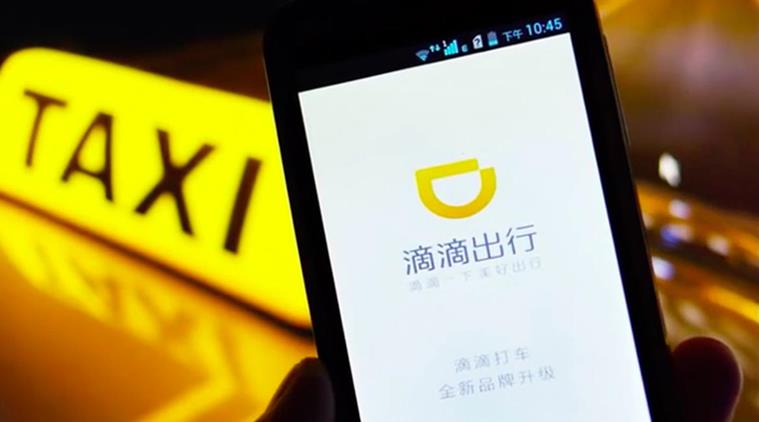Because China buffers Didi and beyond

New squeeze by Beijing authorities on ride sharing platforms such as Didi, Meituan and Amap for marketing methods and fierce competition
New troubles for Didi, the Chinese Uber, and 10 other ride-hailing platforms in China.
Yesterday, Chinese regulators convened eleven platforms – including giants Didi, Meituan, the travel-sharing division of Alibaba, Amap and Caocao, a unit of automaker Geely – over unfair competition issues and employee conditions.
The Ministry of Transportation, with the Cyberspace Administration of China (which oversees the Internet), the Ministry of Industry and Information Technology, the Ministry of Public Security and the State Administration for Market Supervision (Antitrust) have accused the platforms for the marketing methods used, of "fierce competition" and "illegal operations", reads a note from the Ministry of Transport on the meeting held on Wednesday.
Therefore, Chinese regulators ordered car reservation services to rectify cases of misconduct by December, expanding control over an industry that employs millions of people.
China in recent months has tightened control of its largest tech companies in sectors ranging from e-commerce to entertainment, by launching antitrust investigations and introducing strict regulation.
And Chinese tech stocks continue to suffer on the stock market.
The announcement shook tech investors on Thursday, with the Hong Kong-listed stock of Meituan losing some of its previous gains and only gaining 0.63% from the previous day at noon.
Furthermore, Didi, the largest Chinese sharing mobility group, is preparing for the resultsof an unprecedented authority survey on the security of its data.
All the details.
THE FINDINGS BY THE BEIJING AUTHORITIES
On Wednesday, regulators notified eleven shared mobility companies that the sector has suffered from misbehavior, including the recruitment of unskilled drivers and "shifting the risks of operations onto drivers," according to the transport ministry statement.
WHAT DIDI & CO. SHOULD DO
The authorities then called for plans to be drawn up to review the treatment of consumers and workers within four months, as the companies "disrupted the market order based on fair competition, undermined the safety and stability of the sector, and damaged legitimate rights and interests of drivers and passengers ".
In addition, there was a solicitation for a review "of their internal problems, correcting non-compliance behaviors with immediate effect and maintaining a fair and competitive market order".
THE OBJECTIVE OF THE REGULATORS
At the same time, the new squeeze is intended "to create a good environment for the standardized and healthy development of the on-call car market".
LESS FEES AND MORE PROTECTION OF PERSONAL DATA
Specifically, regulators point out that ride-hailing platforms also need to reduce the cutback they take from transactions and protect passengers' personal data.
THE NEW COURSE OF XI
The latest blow to the shared mobility sector follows a series of recent regulatory crackdowns involving many of China's largest tech companies and their founders. President Xi Jinping, in recent weeks, has signaled a large shift towards "common prosperity", interpreted by experts as including not only the redistribution of wealth, but also the improvement of the rights of workers and consumers.
STILL PROBLEMS FOR DIDI
But for the Chinese Uber, the troubles in China began the day after its debut on Wall Street.
Beijing regulators opened an investigation into Didi's cybersecurity the day after raising more than $ 4.4 billion in a New York IPO.
According to media reports , authorities are considering banning overseas IPOs of technology companies that handle large amounts of sensitive user data.
Didi made its Wall Street debut on June 30 in the largest US initial public offering by a Chinese company since Alibaba's debut in 2014, raising about $ 4.4 billion. The stock flew up to + 28.6% that day, and then closed up by just 1%, at $ 14.14 per share, against a capitalization of $ 67.8 billion.
But the problems for China's Uber came with the Chinese authorities 'decision in early July to block new users from downloading the app, out of concern over the collection of users' personal data. In the session of last July 6, the group's prices fell by well over 20%, burning about 15 billion dollars in market value. A week later, news broke regarding the Beijing government's decision to remove Didi's app from Tencent's WeChat messaging service and Ant Group's Alipay.
This is a machine translation from Italian language of a post published on Start Magazine at the URL https://www.startmag.it/smartcity/perche-la-cina-tampona-didi-e-non-solo/ on Thu, 02 Sep 2021 09:54:28 +0000.
